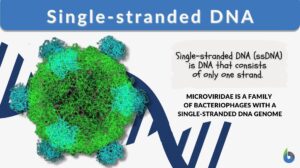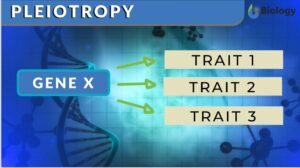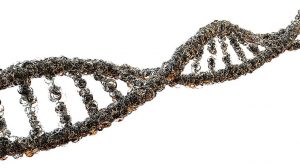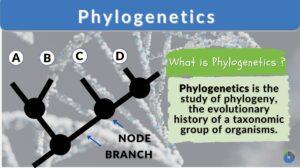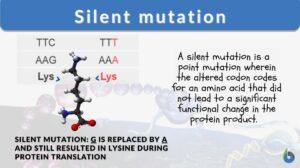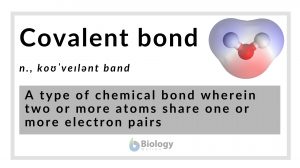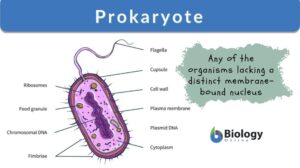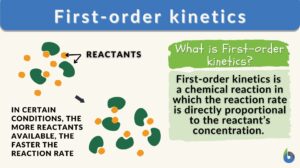Search Results for: single
Single-stranded DNA
What is single-stranded DNA? DNA is the material that living organisms possess that carries their genetic make-up. DNA and... Read More
Single transverse palmar crease
Definition noun The single crease or line extending across the palm, and formed by the fusion of the proximal and the... Read More
Pleiotropy
Pleiotropy Definition When one single gene starts affecting multiple traits of living organisms, this phenomenon is known... Read More
Smooth muscle
The smooth muscle can be described as a type of muscle in the human body that is non-striated and involuntary in action.... Read More
Genetic Mutations
Reviewed by: Mary Anne Clark, Ph.D. Genetic Mutations Genetic mutations are inherited variations in an... Read More
Unicellular
Unicellular organisms are organisms consisting of one cell only that performs all vital functions including metabolism,... Read More
Single stranded DNA virus
Definition noun Any of the viruses belonging to the Class II of Baltimore classification system characterized by having a... Read More
Single bond
single bond A covalent bond resulting from the sharing of one pair of electrons; e.g., H3C-CH3... Read More
Recent single-origin hypothesis
Definition noun The hypothesis that modern humans came from or evolved from a single origin (i.e. in Africa) and then these... Read More
Single cycle circulation
Definition noun A type of blood circulation in which the system has only one circuit, with the blood being pumped through... Read More
Nucleic acid
Nucleic Acid Definition A nucleic acid refers to any of the group of complex compounds consisting of chains of monomers of... Read More
SsRNA-RT virus
Definition noun, plural: ssRNA-RT viruses Single-stranded RNA virus with a positive sense, single stranded RNA genome but... Read More
Polymorphism
Polymorphism Definition The occurrence of two or more different forms or morphs in the population of a species is referred... Read More
Phylogenetics
Phylogenetics Definition Phylogenetics is the scientific study of phylogeny. It studies evolutionary relationships among... Read More
Nuclease S1
Definition noun An endonuclease enzyme capable of degrading single-stranded DNA and RNA Supplement The nuclease S1 is a... Read More
Sexual reproduction
Sexual reproduction is a mode of reproduction involving the fusion of haploid female gamete (egg cell) and haploid male... Read More
Fruits, Flowers, and Seeds
Flowering plants grow in a wide variety of habitats and environments. They can go from germination of a seed to a mature... Read More
Angiosperm
Angiosperms Definition What is an angiosperm? An angiosperm is a plant that produces flowers. The angiosperms, also... Read More
Cell differentiation
Cells are often described as the building blocks of life as they are the smallest unit used to build up organisms. Cells can... Read More
Fragmentation
Fragmentation Definition What is fragmentation? In general, fragmentation refers to the state or the process of breaking... Read More
Polygenic inheritance
Polygenic inheritance refers to the kind of inheritance in which the trait is produced from the cumulative effects of many... Read More
Cell theory
What Is Cell Theory? Biological cell theory explains the idea of organismal constitution, structure, and function. It... Read More
Silent mutation
A mutation is a change in the nucleotide sequence of a gene or a chromosome. When there is only one nucleotide involved, it... Read More
Covalent bond
Covalent Bond Definition What is a covalent bond? In chemistry and other fundamental science fields, a covalent bond is... Read More
Endoplasmic reticulum
Endoplasmic Reticulum Definition The endoplasmic reticulum is a membrane-bound organelle in cells of eukaryotic cells... Read More
Nervous System
THE is the most complicated and highly organized of the various systems which make up the human body. It is the... Read More
Prokaryote
Prokaryote refers to any of the group of living organisms primarily characterized by the lack of a true nucleus and other... Read More
Chemical Composition of the Body
In order to fully understand the mechanisms of human physiology, it is important to have an understanding of the chemical... Read More
Eubacteria
Eubacteria are prokaryotic microorganisms consisting of a single cell lacking a nucleus and containing DNA is a single... Read More
First-order kinetics
What is a First-Order Kinetics (First-Order Reaction)? First-order kinetics refers to a reaction wherein the overall rate... Read More
